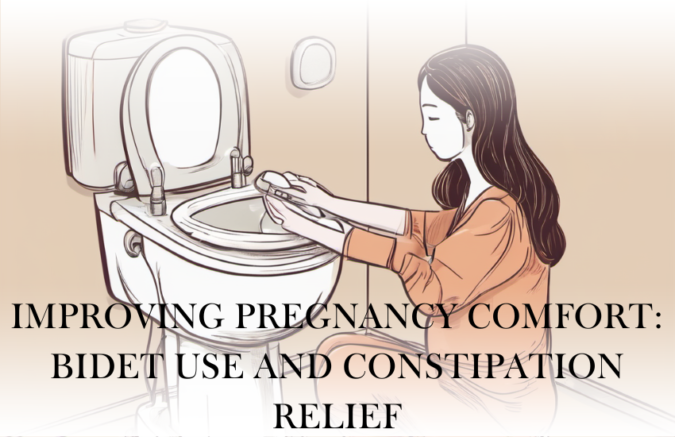Introduction
Improving Pregnancy Comfort: Bidet Use and Constipation Relief: Many expectant mothers experience constipation due to hormonal changes, increased pressure on the intestines and prenatal vitamins.
While there are various remedies to alleviate this issue, bidet use has emerged as a promising solution that addresses constipation and enhances the overall quality of life during pregnancy.
Understanding Constipation during Pregnancy
Constipation affects up to half of all pregnant women. Additionally, the growing uterus puts pressure on the intestines, exacerbating the issue.
Bidets: A Solution to Pregnancy-Related Constipation
Bidets, long known for their hygienic benefits have gained attention for their potential to mitigate constipation among pregnant women. Using a bidet after using the toilet allows for gentle and thorough cleansing using water, promoting cleanliness while reducing the reliance on abrasive toilet paper, which can aggravate sensitive areas. Improving Pregnancy Comfort: Bidet Use and Constipation Relief.
Effect of Bidet Use on Constipation Severity
Research indicates that bidet use can positively impact constipation severity among pregnant women. The gentle yet effective water spray from bidets aids in cleaning the perianal area without causing irritation, which can be especially beneficial for pregnant women experiencing discomfort due to constipation. To ensure proper hygiene without abrasive wiping, bidets can potentially reduce discomfort and discomfort.
Enhanced Quality of Life
The discomfort caused by constipation can significantly impact a pregnant woman’s quality of life. Bidet use offers a gentle and soothing alternative to conventional methods, providing relief and promoting comfort during crucial periods. The cleanliness and freshness offered by bidets can contribute to a sense of well-being, alleviating some of the physical discomforts associated with pregnancy-related constipation.
The Psychological Impact
Pregnancy is a sensitive time emotionally as well as physically. Discomforts like constipation can take a toll on a woman’s emotional well-being. Bidet toilet use not only addresses physical discomfort but also helps in maintaining a sense of cleanliness and hygiene, which can positively impact mental health during pregnancy. Feeling fresh and clean can contribute to a more positive outlook and overall well-being.
Conclusion
Bidet use during pregnancy presents itself as a gentle, effective and hygienic solution for addressing constipation while positively impacting the overall quality of life of expectant mothers. By offering a comfortable and soothing alternative to traditional methods of cleansing, bidets contribute to reducing discomfort and promoting a sense of cleanliness and well-being. However, while bidets may offer relief, consulting with healthcare professionals about managing constipation during pregnancy remains crucial.
FAQs
Bidet use is generally considered safe during pregnancy. However, it’s advisable to consult with a healthcare professional for personalised guidance, especially if there are specific health concerns.
Bidets can provide relief for individuals experiencing haemorrhoids by gently cleansing the area without causing further irritation. However, it’s essential to seek medical advice.
Using bidets is typically safe, but some individuals might be sensitive to certain water temperatures or pressure settings. It’s important to adjust settings to a comfortable level.
Bidet use can generally be started at any stage of pregnancy. However, some women might find it more beneficial during the later stages when constipation tends to be more common due to increased pressure on the intestines.
